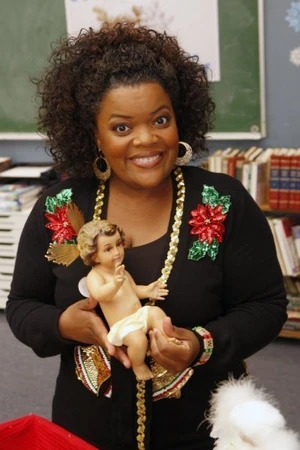Dan Harmon's 'Community' is a representation galore. The sitcom presents multiple groups of people represented by different characters. Starting with the main character, Jeff Winger, a stereotypical white man that seeks women in desperate ways. Dressed in casual attire most of the time with a common short haircut and growing a light beard as the show progresses. The stereotypical white man in Community is represented as selfish and petty, but also as a middle-class, single community college student, which differs from the common representation of a successful father. Jeff's flirty mannerisms around most women he meets depict him as desperate. Besides Jeff's appearance and personality, the events he involves himself in also support this representation. Throughout the first episodes of the sitcom, Jeff is shown trying to develop a romantic relationship with his classmate Britta Perry, but fails in the attempt, leaving an awkward relationship between the two in upcoming episodes.
Throughout the first study group between the main character group, there are many examples of representation, through opinions, mannerisms, and costume designs.
One of the main characters, Troy Barnes, is represented as a popular High School football player through his clear varsity attire and diction. In his introduction to the show, he describes himself as a quarter-back and a "prom king", depicting Troy as immature and possibly still caught up in his High School life. He is then described by Annie Edison, one seventh of the study group, as a "jock", which develops his character and foreshadows his personality. Troy is further shown to be somewhat nerdy. After developing a friendship with classmate Abed Nadir, Troy's true colors are shown through his love for robot movies and video-games. This side of Troy's personality represents the underlying insecurity that follows High School football stars, where their secret hobbies and passions are censored due to their desire to remain popular. Even though Troy's personality originally juxtaposed Abed's, their friendship helped Troy to rediscover his passions.
Racial representation is also shown through Troy's character in the many conversations he has where African-American stereotypes are discussed. The on-going discriminatory remarks by study group member, Pierce Hawthorne, develop the issue of how Troy is often profiled due to his skin color. The classic scene of Troy and Jeff having a conversation in the football field discusses discriminatory stereotypes in a comedic manner.
Religious representation is also shown in Community through Shirley Bennett, a conservative Christian woman who's beliefs usually clash with the other characters, depicting the stereotypical issues that may happen with religious mixes. Shirley has been a protagonist in multiple discussions with other study group members such as Annie who is Jewish and the underlying atheistic view of the other members. Shirley's social status is also a matter of representation as she is shown as a single (Even though she finds a partner further in the show) mother of 2. These details develop a possible racial stereotype and may show a negative religious standard through unstable families. But even through Shirley's hardships follow her through the show, she pulls through and serves as a representation for single mothers that will do anything for their children.




No comments:
Post a Comment